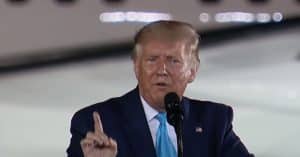White House Reverses Cuba's Terror Sponsor Status
The Biden administration took a significant step on Tuesday by removing Cuba from the list of state sponsors of terrorism, a reversal of a 2021 Trump-era policy decision.
According to FoxNews.com, This move is tied to a deal brokered by the Catholic Church aimed at the release of political prisoners in Cuba.
In this latest development, the action to lift Cuba's designation was accompanied by President Biden's formal certification. The certification stated that during the previous six months, Cuba had not supported international terrorism and had offered assurances against future support for such activities. The U.S. government has characterized this shift as an essential component of broader aims to increase freedom and promote human rights on the Caribbean island.
Background on Previous Designations
Cuba was originally classified as a state sponsor of terrorism in 1982, a status designed to restrict economic aid, arms exports, and other measures. However, in 2015, this designation was removed, only to be reinstated in January 2021 by the Trump administration. This reinstatement was justified by Cuba's relations with countries like Iran and North Korea, as well as its refusal to extradite leaders of the Colombian ELN group.
The most recent reversal comes amidst a broader international context, emphasizing the United States' strategic focus on engagement and dialogue. A national security memo from the White House outlined a vision for increased democracy and respect for human rights in Cuba, stating that practical engagement is necessary.
Reaction from Political Figures and Entities
Senator Ted Cruz voiced strong opposition to the decision, deeming it unacceptable and signaling his intention to seek a reversal in collaboration with former President Trump. He asserted that Cuba continues to engage in terrorism-related activities and expressed concern over the implications for U.S. justice.
The Trump administration, when reinstating the designation in 2021, stressed its intrinsic relevance to countering Cuban interference in regional affairs, particularly in Venezuela. The statement underscored its intention to hold the Cuban government accountable and prevent resources from fueling oppressive activities within its borders.
The Role of International Agreements
Central to the Biden administration's reversal is a series of negotiations reportedly facilitated by the Catholic Church. These discussions are focused on the liberation of political prisoners in Cuba, a critical humanitarian concern that has drawn international attention. The precise details of these negotiations remain undisclosed, but they are believed to have influenced the reassessment of Cuba's status.
The broader diplomatic landscape indicates a calculated approach by the Biden administration to balance geopolitical interests while addressing human rights issues. By revoking the National Security Presidential Memorandum 5 (NSPM-5), the administration signaled its commitment to reshaping policies toward Cuba.
Efforts to Enhance Engagement Programs
The removal of Cuba's terrorism designation is part of wider efforts to improve relations and foster opportunities for free enterprise. The White House emphasized that achieving objectives of greater freedom and democracy hinges on expanding beyond previously established frameworks like NSPM-5.
While this policymaking direction marks a notable divergence from the Trump administration's approach, there remains skepticism among some U.S. political leaders. Their concerns reflect the ongoing tensions and complexities inherent in U.S.-Cuba relations, which historically have fluctuated between engagement and ostracization.
Questions Remain as Future Unfolds
Despite the Biden administration's assurances, questions about the long-term impacts of this policy shift persist. The inability of news outlets like Fox News Digital to obtain comments from both the State Department and the White House adds a layer of intrigue to the unfolding situation.
This development also invokes memories of past diplomatic undertakings, such as the flurry of activities that surrounded the 2015 decision to remove Cuba from the terrorism list. The ongoing narrative denotes a continual balancing act as the U.S. navigates its strategies towards Havana.
Complex Dynamics in U.S.-Cuban History
The historical context of Cuba's recurrent designation as a terrorism sponsor highlights the complex dynamics of U.S.-Cuban relations. This relationship, punctuated by periods of tension and thaw, underscores the challenges of crafting a foreign policy that aligns with both national security interests and humanitarian commitments.
As the situation evolves, the international community will be closely observing the U.S.'s diplomatic maneuvers and their effects on Cuba's political landscape. The interplay between domestic policy decisions and foreign relations will remain a critical area of focus.
The outcome of this current chapter in U.S.-Cuba relations hinges on multifaceted interactions, diplomacy, and the balance of opposing forces. The story of policy, human rights, and engagement continues to unfold, reflecting the intricate complexities at the heart of international governance.




